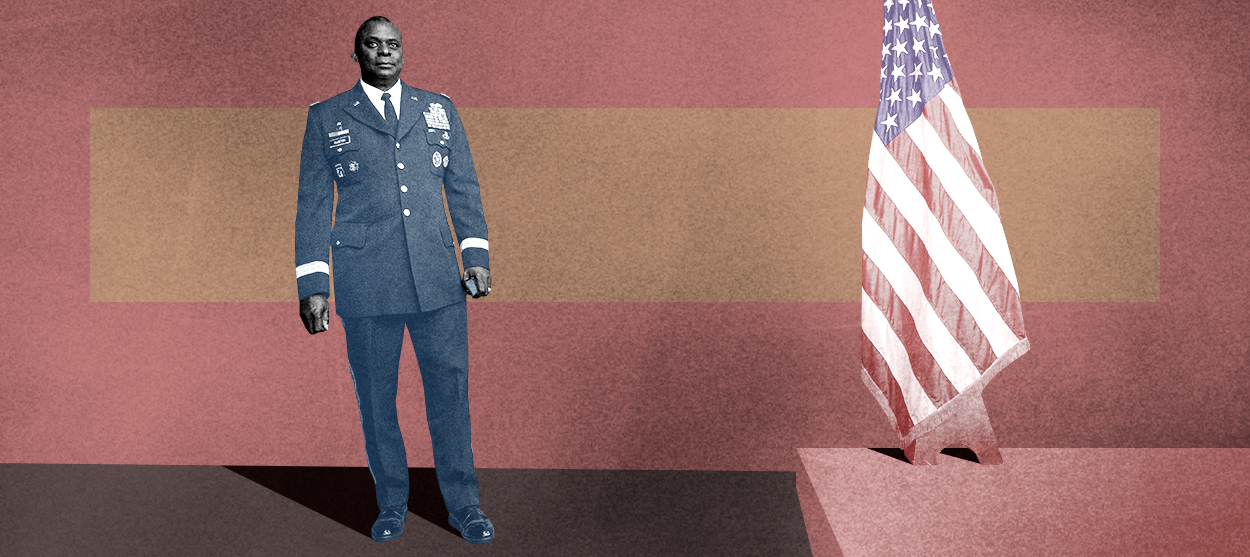How Biden's defense pick became a constituency crisis
The debate over Lloyd Austin displays the competing demands within Biden's own coalition


A free daily email with the biggest news stories of the day – and the best features from TheWeek.com
You are now subscribed
Your newsletter sign-up was successful
The nomination of Lloyd Austin to serve as secretary of defense may serve as a microcosm of how difficult it will be for President-elect Joe Biden to manage the competing demands of the unwieldy coalition that put him in office.
As Biden assembled his national security team, some feared liberal hawks were once again circling the White House. The incoming president is something of a wildcard on foreign policy. In the Senate, he was often a liberal hawk himself, not only voting for the Iraq war but playing a large role in rebuffing fellow Democrats who wanted an authorization of force that did more to constrain President George W. Bush. As vice president, Biden's advice to President Barack Obama tended to be more dovish.
Thus progressives grew concerned about Michèle Flournoy, the erstwhile frontrunner for secretary of defense. She had a record of boosting interventions in Libya and Syria, promoting the 2009 Afghanistan troop surge, and endorsing the framework of "preventive war" that led to the Iraq invasion, though (or perhaps because of all this) she was held in high regard by the Washington military establishment.
The Week
Escape your echo chamber. Get the facts behind the news, plus analysis from multiple perspectives.

Sign up for The Week's Free Newsletters
From our morning news briefing to a weekly Good News Newsletter, get the best of The Week delivered directly to your inbox.
From our morning news briefing to a weekly Good News Newsletter, get the best of The Week delivered directly to your inbox.
Opposition to Flournoy percolated, and Biden faced a Senate that will, in the best-case scenario for his party, be split 50-50 and only controlled by the Democrats due to Vice President Kamala Harris' tie-breaking vote. Even that breakdown would have given Flournoy little margin for error. But there was a catch: She was not entirely without liberal support and would have been the first woman to serve as secretary of defense.
But Biden, also under pressure to increase the racial diversity of senior Cabinet posts, had another option in Austin. "He was the first African-American general officer to lead an Army corps in combat and the first African American to command an entire theater of war; if confirmed, he will be the first African American to helm the Defense Department — another milestone in a barrier-breaking career dedicated to keeping the American people secure," Biden wrote in The Atlantic.
Perfect, right? Not so fast! Austin's military credentials, a major reason he was being selected to run the Pentagon in the first place, are a problem for some progressives. Less than seven years removed from being a general, Congress would need to grant him a waiver to serve as secretary of defense. Some Democrats, interested in preserving civilian control of the military, are not eager to give him one.
"This is becoming a trend, and I don't like it," protested Sen. Brian Schatz, a Hawaii Democrat. Biden points out that President Trump's first secretary of defense, James Mattis, received a waiver. But for some Democrats, that's precisely the problem. "Waiving the law should happen no more than once in a generation," Sen. Jack Reed, a Rhode Island Democrat, told Mattis at his 2017 confirmation hearing. "Therefore, I will not support a waiver for future nominees." Austin faces the same complicated Senate math as Flournoy.
A free daily email with the biggest news stories of the day – and the best features from TheWeek.com
The left faces difficult choices over its priorities. Is it more important to move away from the John Bolton-lite foreign policy favored by much of the Democratic Party's national security elite, or to ensure diversity? If identity politics is the greater priority, should intersectionality dictate whether it is preferable to tap the first Black or female secretary of defense? It's also the case that many progressives would quietly like to see an administration to the left of Obama's, however much the rank-and-file continues to admire the 44th president.
Yet Biden doesn't owe his election to the left alone. His electoral coalition stretched all the way from far-left Democrats like Alexandria Ocasio-Cortez to disillusioned Republicans like John Kasich, who actually got more speaking time at the Democratic convention than the rising New York congresswoman. While foreign policy no longer breaks down neatly along conventional left-right lines — Trump wants a speedier exit from Afghanistan than some of the names in Biden's rolodex, for example — the suburban Republican leaners who were the difference makers for the president-elect in the Electoral College may not want a progressive-run military or trust that it would be sufficient to keep the country safe for the next four years.
"To govern is to choose." So said the veteran British politician Nigel Lawson. As Biden prepares to govern, he is going to face a lot of difficult choices. The secretary of defense is just one.
W. James Antle III is the politics editor of the Washington Examiner, the former editor of The American Conservative, and author of Devouring Freedom: Can Big Government Ever Be Stopped?.
